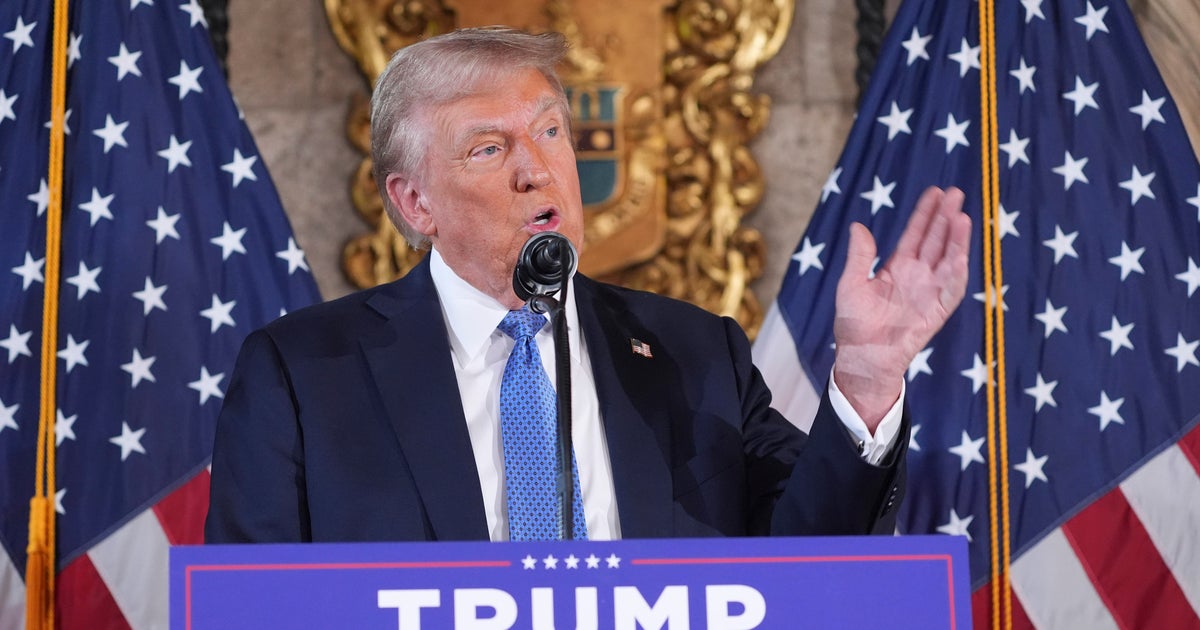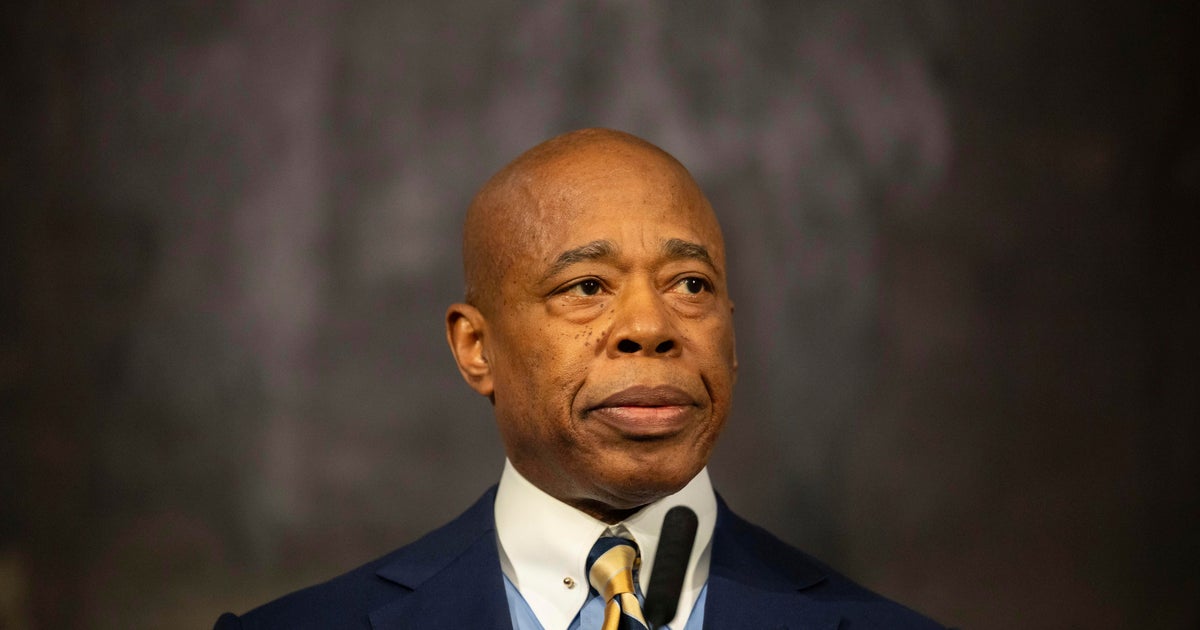Trump says he'd put Elon Musk in charge of proposed efficiency commission "if he has the time"
Former President Donald Trump outlined his economic proposals if he is elected to a second term on Thursday, while throwing his support behind a government efficiency commission pushed by Elon Musk.
Speaking to The Economic Club of New York, Trump said the commission's creation came "at the suggestion of Elon Musk," and Trump said it would be tasked with "conducting a complete financial and performance audit of the entire federal government and making recommendations for drastic reforms."
The former president said Musk has agreed to lead the task force "if he has the time." Trump said the commission would develop an action plan to eliminate fraud and improper payments within six months.
"This will save trillions of dollars," he said. "It's massive."
Musk endorsed Trump following the assassination attempt in July and is one of Trump's most prominent supporters, hosting a one-on-one interview with the former president on X, formerly known as Twitter, last month. The tech billionaire suggested openness to working within the commission in a social media post Thursday morning, saying "I look forward to serving America if the opportunity arises," though the move could spark conflict of interest concerns due to Musk's business empire. He added that no pay, title or recognition would be "needed."
Trump also touted the economic accomplishments of his first term in his remarks on Thursday and criticized the current economic environment under the Biden administration — and while also contrasting his vision for the next four years with what Vice President Kamala Harris has laid out.
"I'm here today to lay out my plan to rescue our country from this nightmare," Trump said.
Trump outlined that he would implement an energy policy that would roll back regulations on American energy to cut energy prices in half within a year of taking office. He pledged to end electric vehicle mandates and launch a campaign to cut regulations. Trump urged that he would make America the "world capital for crypto and bitcoin." And he pledged to make his 2017 tax cuts permanent and to "cut taxes even more," while also touting his no-tax-on-tips policy that made waves in recent weeks.
"I am promising low taxes, low regulations, low energy costs, low interest rates, secure borders, low, low, low crime and surging income for citizens of every race, religion, color and creed," Trump said, claiming his plan will "rapidly defeat inflation, quickly bring down prices and reignite explosive economic growth."
Trump's support for the government efficiency commission aimed at slashing costs comes as the former president's economic proposals have been criticized for the likelihood that they would inflate the national debt.
Meanwhile, both Trump and Harris have been making their respective economic pitches to Americans as the campaign heats up. And next week, the two will face off for the first time on the debate stage, where economic issues will likely be front and center.
On Wednesday, Harris proposed policies at a campaign stop in New Hampshire aimed at spurring small business creation across the U.S., while calling for a smaller increase than President Biden has proposed on capital gains taxes.
The economic push comes as Americans identify economic issues as a top priority heading toward Election Day, as Trump leads with people who say the economy is a major factor, according to CBS News polling.
"This election will decide whether we reward Kamala Harris with reelection and four more years of crime, economic calamity and international humiliation or whether we change that direction and once again build the greatest economy in the history of the world — which we had during the Trump administration," Trump said.




